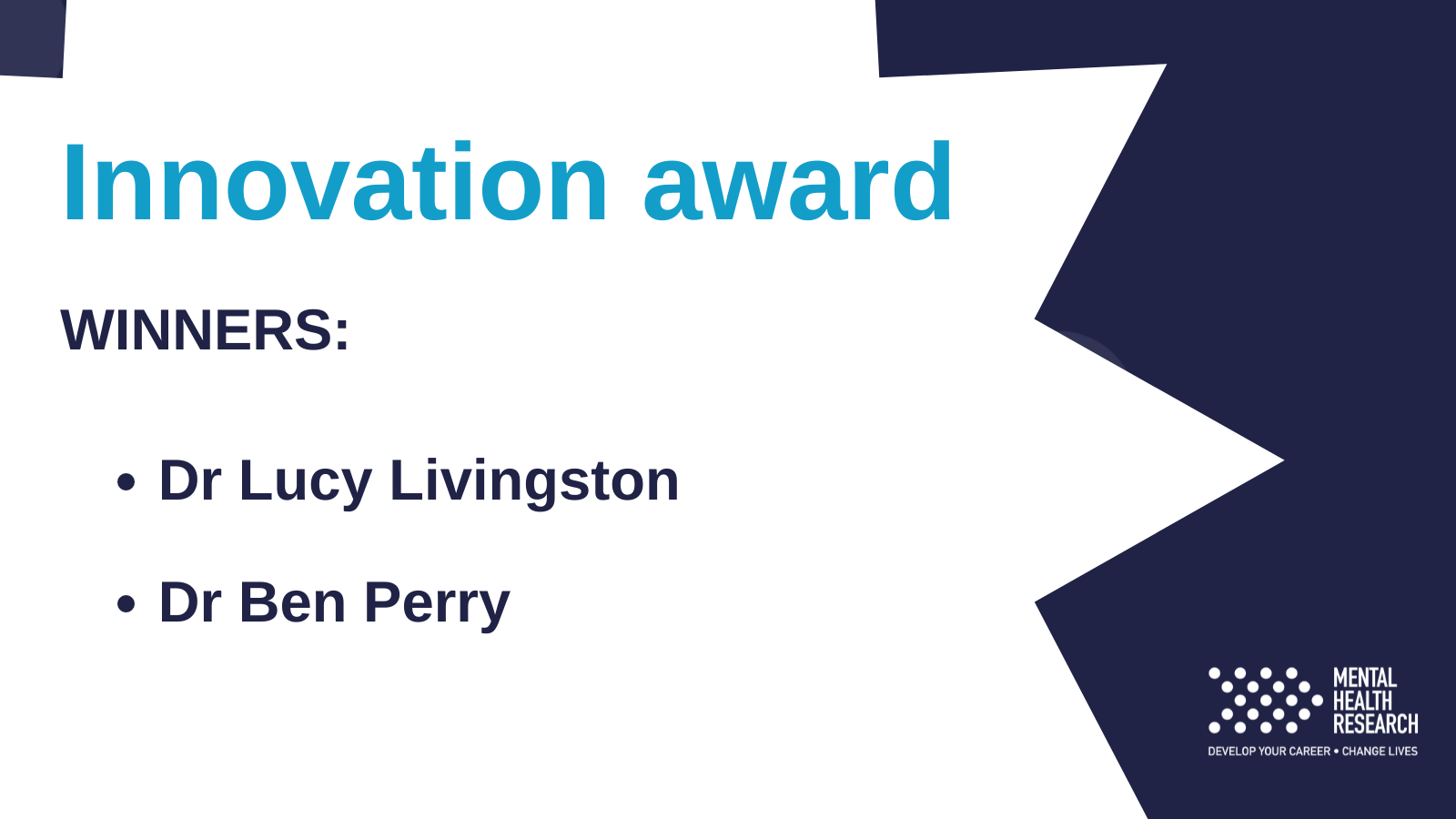
Judges awarded the Innovation prize to two researchers who are tackling two very different areas of mental health research in new and original ways. Dr Lucy Livingston researches the understudied phenomenon of ‘compensation’ in autism, and Dr Ben Perry’s work focuses on physical health risks in people diagnosed with schizophrenia. There was a clear consensus among the judging panel that these two individuals were clearly top: high impact papers, innovative, impactful, and respectful of people with lived experience.
Winning project: Compensation in Neurodevelopmental Conditions: Theory, Evidence, and Clinical Implications
Lucy (Cardiff) has conducted highly novel, innovative research into ‘compensation’, an otherwise poorly understood concept in autism and neurodevelopmental conditions. The phenomenon of compensation – that is, individuals using compensatory strategies to disguise their underlying difficulties – had received very little research attention until Lucy published ground-breaking and novel theoretical and empirical research on this topic. This included one of the first qualitative studies in The Lancet Psychiatry, evidencing that compensation often results in individuals receiving a late autism diagnosis, experiencing anxiety, depression and suicidal ideation, and having their support needs overlooked in society. Her work has been well received by clinicians working with people with neurodevelopmental conditions and additional mental health difficulties, who recognise that compensatory strategies make it harder to diagnose autism.
From carefully listening to autistic individuals, Lucy, has done work which has led to new insights into the experience of autism that have real potential to help people. Commenting on Lucy’s work, judges said:
The outcomes of this outstanding project promise to increase well-being for many autistic individuals, achieving more timely support for those whose difficulties are not always apparent.
– Public member of judging panel
Winning project: Improving cardiometabolic comorbidity in people with schizophrenia and related psychoses
Ben (Cambridge) is is researching a crucial area: physical health in people diagnosed with schizophrenia. It’s well known that people with schizophrenia have a higher risk of physical health problems like heart disease compared to general population. Ben’s work tries to understand the root causes and develop new clinically applicable tools to identify and address it early on. The translation of his work on understanding into a risk calculator for the occurrence of cardiometabolic disease could prove extremely beneficial for people’s lives.
While not yet suitable for routine clinical use, the risk prediction algorithm he developed – PsyMetRiC – has gained a great deal of interest among patients, clinicians, and researchers.
Judges recognised that Ben’s work has the potential to transform our understanding of the physical comorbidity associated with schizophrenia, improve our ability to identify it, and highlight the potential for novel therapeutic targets.
Commenting on Ben’s work, one panel member said:
Thanks to Dr Perry’s ground breaking work, young people with psychosis and depression will have the possibility of prevention and treatment of cardiometabolic disorders – resulting in increased quality of life, reduced health care costs and improved life expectancy. – Public member of judging panel
The Innovation in Mental Health Research award was the most popular award. Among the 48 nominated projects, judges noted there was a large number of other people who were doing excellent work.
